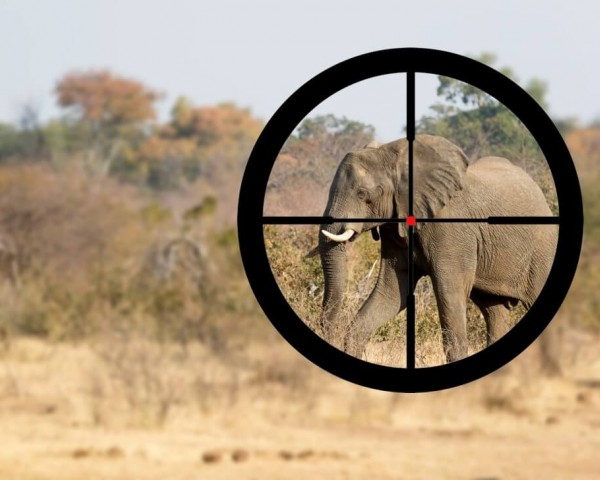Many countries, regions and islands have received few or no tourists for months and as a result, many people have slipped into unemployment. A bitter side effect of the covid crisis: wild animals are again increasingly hunted and released for shooting.
Last week, the controversial elephant hunt began in Botswana. Due to Corona restrictions, the hunt had to be postponed last year. This year, however, it will take place from April 6 to September 21, 2021. The hunting season is proceeding as planned, says Kabelo Senyatso, director of the National Park Authority. Just two years ago, a government commission proposed ending the elephant hunting ban, which went into effect in 2014, because it believed there was a sufficient number of elephants. Then, in May 2019, the president decided to implement the plan.
For this year’s hunting season, 287 pachyderms have been released for shooting. The National Parks and Wildlife Authority says it wants to boost hunting tourism in Botswana, which is currently dormant because of the Corona pandemic. That is why many shooting licenses were not used last year. The elephants cause problems, trample farmers’ fields and are a threat to people. Even attempts to keep the animals away from settlements or to relocate them have not been able to solve the conflicts between people and elephants.
However, the elephant population in Africa is only growing in the national parks in Namibia, South Africa, Zimbabwe and Botswana. But 80% of the animals live outside these protected zones, according to the conservation organization WWF. That’s why there are fewer of them every year, mainly due to poaching, but also because their habitat is shrinking and climate change is affecting them. For example, a recent study shows that there are now about 80% fewer seeds and fruits as food for elephants in the forests of Central Africa than there were 30 years ago.
The Maldives are also currently making negative headlines regarding animal welfare. On March 23, 2021, the local Ministry of Fisheries, Marine Research and Agriculture declared to consider lifting the 11-year-old ban on shark fishing.
In an international appeal, the authorities of the Maldives are urged to maintain the shark fishing and trade bans that have been in place for more than a decade. Research has shown that the protected shark population increases the demand for diving trips and thus brings in additional income for the Maldives. With the downturn in tourism in the Maldives, it is very important to protect and preserve the ecosystem well. A petition has been launched to preserve the shark fishing ban.





